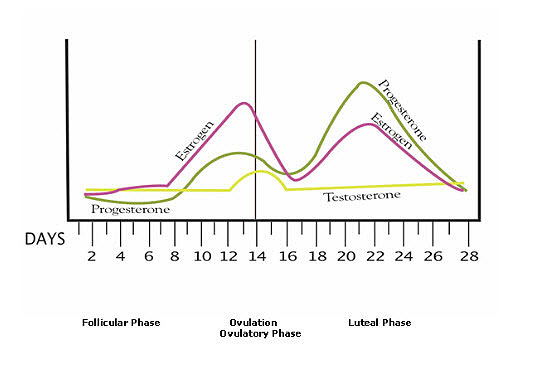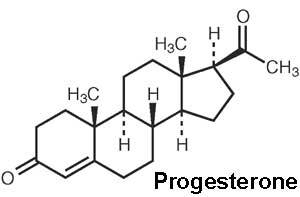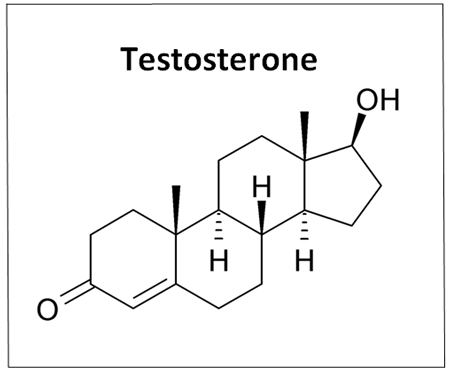Hormones, Periods, and Mental Health
I don’t know what it is about the discussion of women’s reproductive organs that makes people so stand offish, but we need to talk. How many of you experience premenstrual issues or “PMS” before you start your period? Is your anxiety heightened? Do you find yourself feeling overwhelming heaps of sadness, irritability, depression, or rage? Most do.
I am ironically on my period right now as I write this. Day 3, to be exact. Day 3’s are typically my heaviest flow days, followed by horrible pain and need for sleep. But I feel amazing, mood wise. I feel like myself, again. About 2 to 3 weeks before my period starts, I am a different person. I start craving foods that I normally don’t eat nor usually want- the more carbs, sugar, salt, and grease, the better. I become more sensitive to things people do or say, i’m anxious, emotional, and just sad. I’m in a fog that I can’t seem to get out of, no matter how many pep talks I give myself.

Source: Tumblr
The symptoms I feel are aligned with PMDD, which include depression, decreased interest in usual activities, lethargy, joint pain, food cravings, mood swings, frequent crying, breast tenderness, bloating, acne, forgetfulness, feeling overwhelmed, difficulty concentrating, and sleeping a lot more or a lot less. It sounds like it could be a result of an underlying mental illnesses, but the only difference, according to psychologist Jean Endicott of Clinical Psychology in the Department of Psychiatry at Columbia University, is that the symptoms of PMDD are cyclical, tied to your menstruation and subside once you actually start bleeding.
The problem is, we’ve been taught to believe that these symptoms are something that we who bleed from our vagina’s just have to deal with. And while these hormonal feelings are real and can have a tremendous impact on our mental health that should be taken seriously, it isn’t our destiny to suffer every month. It actually means that there is a problem, and those symptoms are our bodies way of trying to tell us this that something is wrong.
Let’s start by talking about our sex hormones. The graph below of the rise and fall of hormones progesterone, estrogen, and testosterone during the menstrual cycle.

Source: HormoneCycle.com
But what are the functions of these hormones, and how can they influence my period?
Progesterone, Estrogen, and Testosterone

Source: DarouWellness.com
Progesterone, also known as the “happy hormone,” is produced by the ovaries and adrenal gland. According to The National University of Natural Medicine, ” Progesterone ensures the development and function of the breasts and female reproductive tract. In the brain, progesterone binds to certain receptors to exert a calming, sedating effect. It improves sleep and protects against seizures. Progesterone is also a diuretic. It enhances the sensitivity of the body to insulin and the function of the thyroid hormones. It builds bone and benefits the cardiovascular system by blocking plaque formation in the blood vessels and lowering the levels of triglycerides. Progesterone also can increase libido and contribute to the efficient use of fat as a source of energy.”
Progesterone’s job is to help regulate the lining of the uterus. Dr. Shawna Darou, ND, explains, “Having optimal progesterone levels is very important for women’s health for many reasons, the most significant one being to balance out estrogen. Low progesterone can be associated with PMS, endometriosis, uterine fibroids, infertility, early miscarriage, PCOS, heavy periods and perimenopause. Having low progesterone is also associated with the development of breast cancer since this is the hormone that counterbalances estrogen.”

Source: Marsha Nunley, MD
Estrogen “stimulates the growth of tissue, such as development of breast and reproductive organs, and ensures their function. In the brain, it boosts the synthesis and function of neurotransmitters that affect sleep, mood, memory, libido, and cognitive factors such as learning and attention span. Estrogen decreases the perception of pain, preserves bone mass, and increases HDL – the good cholesterol. It also preserves the elasticity and moisture content of the skin, dilates blood vessels, and prevents plaque formation in blood vessel walls.”

Source: Age In Place Home Care
Testosterone “is manufactured in women by the ovaries and adrenal glands, enhances libido and sexual response. It strengthens ligaments, builds muscle and bone, assists brain function, and is associated with assertive behavior and a sense of well-being. The level of testosterone influences both stamina and restful sleep. It has a protective effect against cardiovascular disease in both men and women.”
Hormonal Imbalance Symptoms: Dominance and Deficiency’s
Hormone balance is deeply connected to the food we eat, the exercise we get, the toxins we absorb, the weight we carry, and the stress levels we put up with.
Progesterone:

Source: Effects-of-high-and-low-progesterone
Estrogen:

Source: Effects-of-high-and-low-estrogen
source:
Testosterone:

Source: Effects-of-high-and-low-testosterone
Ways To Heal
Many resort to the contraceptive pill to help regulate their hormones. But the pill contains synthetic hormones that the body absorbs, tricking it into believing that it is pregnant, thus stopping to the body from ovulating. When that happens, hormone levels begin to drop. This is why many women suffer from depression while taking hormonal contraceptives. Hormonal birth control doesn’t heal existing problems, it merely masks the symptoms that can result in long term negative effects like infertility, cancer, blood clots, stokes, etc…
I know first hand that eating well and taking care of yourself can help heal your body after changing to a plant-based, vegan diet for an entire month straight. I was told by doctors that I would never be able to get rid of the cysts in my breasts or cure endometriosis, and birth control was my only option. I couldn’t accept that, and decided to take my health into my own hands. After a month without dairy or meat products, I no longer had those pesky PMS or PMDD symptoms or cysts in my breasts.
So when I don’t eat well or my stress levels are higher than normal, my period’s are typically horrible. It’s all related!
So what do you do?
1. Reduce animal products.
If you’re suffering from endometriosis or any other kind of hormonal imbalance, I strongly recommend that you replace your dairy and meat products with plant-based foods, as meat and dairy contain hormones.
“Dairy is one of the biggest triggers of hormonal imbalances because of all the hormones found naturally in milk and because of the hormones and antibiotics added to milk. In fact, dairy has over 60 hormones that can contribute to imbalances. Dairy and gluten are among the most common food sensitivities that you might benefit from eliminating from your diet,” according to
2. Manage stress levels.
“Progesterone also can decline with prolonged periods of high stress. The reason is that both progesterone and the adrenal stress hormone cortisol share the same precursor hormone called pregnenolone. When you are going through a period of prolonged high stress, your body will use more pregnenolone to keep up with the demand for cortisol. This is also a way your body protects from getting pregnant during a period of high stress,” Dr. Shawna Darou, ND.
3. Eat more healthy fats, (The 8 Best Foods to Balance Your Hormones by Emma Stimpson).
– Linseeds
– Chia seeds
– Avocado
– Certified Organic Coconut Butter
4. Add supplements(herbs, teas, powders).
–Evening Primrose
–Magnesium (dark chocolate, broccoli, spinach, almonds, bananas).
–Calcium (dark green vegetables, seaweeds, almonds, plant-based milks and cheese, chia seeds).
–Vitamin D (Mushrooms, almond milk, sunlight, tofu, fortified orange juice).
–Vitamin B, 6, 9, and 12
–Maca Powder
5. Exercise.
6. Get Enough Sleep.
So after reading that information, we can only imagine how much of an influence having an imbalance of hormones can do to our bodies… It sounds scary…. but the good news is, it can be fixed. Take control of your reproductive health, and explore your options. You don’t have to suffer!
Written by Teresa Johnson
The post Hormones, Periods, and Mental Health appeared first on LAPP..


Leave a comment